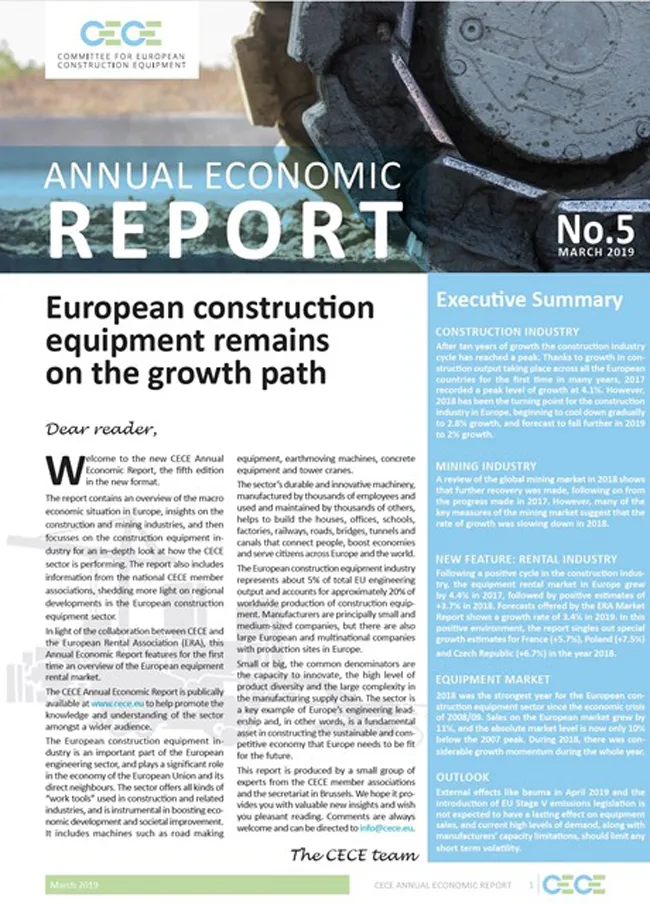A positive outlook of business has been revealed by the German equipment manufacturers association, the VDMA.
March 5, 2012
Read time: 2 mins
A positive outlook of business has been revealed by the German equipment manufacturers association, the 1331 VDMA. According to the Frankfurt-based VDMA, the German construction equipment and building material machinery industry saw a growth in turnover of 13% to €10.6 billion during 2010. Of these, the construction machinery sector accounted for €6.3 billion, whereas €4.3 billion came from the construction equipment, glass and ceramics machinery sectors. For the current year, the industry is expecting to see a growth in both areas of another 10%. In total, 2010 was a better year for the companies than they had expected. Differences were significant, however, when comparing the different segments to each other. Sales in earthmoving machinery jumped by 25%, while demand for road building machinery climbed 38%. However, with regard to incoming orders for 2011 there is a notable development. Already during the second half of 2010, demand grew significantly in all areas. Manufacturers of construction equipment currently have 56% more incoming orders. Capacity utilisation has also developed positively. On average it is at about 80% for the entire industry. The fact that most companies kept their regular staff during the crisis is now of big advantage. The only slowing down factor to these positive trends is the supplying industry. Some components see lead times of 25 - 32 weeks. Some manufacturers in the construction machinery industry already fear not to be able to fulfil some of their projects. In addition to some components being in short supply, the high prices on raw materials, steel and natural rubber fully affect the construction machinery manufacturers.
The current push comes from abroad and China and India in particular, but also the Middle East as well as Brazil. Russia, the most important market of the industry on Germany's doorstep, although having an enormous demand is currently in a waiting position. Demand within the industrialized countries is still cautious and likely to stay like this mid-term, according to experts. Times when Europe, North America and Japan together made two thirds of the international demand of construction machinery are over. Already today nearly every second construction machine being produced worldwide is sold to China.
The current push comes from abroad and China and India in particular, but also the Middle East as well as Brazil. Russia, the most important market of the industry on Germany's doorstep, although having an enormous demand is currently in a waiting position. Demand within the industrialized countries is still cautious and likely to stay like this mid-term, according to experts. Times when Europe, North America and Japan together made two thirds of the international demand of construction machinery are over. Already today nearly every second construction machine being produced worldwide is sold to China.







